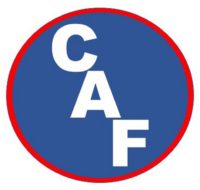CAF SYSTEM MAINTENANCE
According to NFPA Std. 1150 – There are four types of finished foam – not knowing when and where to use which type and under which circumstances can lead to a negative experience.
Not knowing how to cool hydraulic oil during the compression process (remember – it IS Compressed Air Foam) can lead to a negative experience.
Not knowing how to change and maintain the fluids and filters can lead to a negative experience.
Not knowing when and how to keep the system exercised and ready to run can lead to a negative experience.
A negative experience could be anything from an injury or worse, the unnecessary loss of someone’s property, or just the frustration of not having things work the way they should.
A successful CAF program does not occur by osmosis. It comes from the following:
The purchase of a good machine (system)
Injecting the proper quality foam concentrate
Having the proper instruction in the use of the system and appropriate application of the right finished foam
Conducting the manufacturers recommended system checks and maintenance
Regular practice with the system and foam application
CAF Systems are not maintenance nightmares, but can easily become one if the system operator(s) does (do) not understand the system. In fact, an untrained operator can practically destroy the machine.
Do to the number of manufacturers and the number of different types of systems, it is not possible for this site to detail system maintenance. However, there are a few simple tasks that are common to most systems:
Units that utilize large compressors need annual hydraulic oil and hydraulic oil filter changes.
Hydraulic oil cooling systems also have filters to service.
Air/Oil Separators also require periodic replacement.
Units that utilize oil filled concentrate proportioners need annual oil changes. Those without oil need periodic lubing.
Foam concentrate lines also have filters to service.
The power systems also need service – these may be auxiliary engines, PTO drivers, belt drives.
Systems that utilize fixed limit tanks obviously will need periodic testing and recharging.
CAF Systems are more complicated that regular water engine systems because of the addition of components. Systems are designed to be reliable. However, it is a machine and the machine and/or any of its components are capable of breaking. Without adequate operational instruction, the chances of a malfunction are high. With adequate operational instruction, the operator can easily avoid common failures and can quickly recognize when the machine is not operating properly, thus preventing serious damage. This web site cannot emphasize enough the importance of adequate operational instruction in preventing the dreaded maintenance nightmare.
It is also critical that all operators and supervisors be thoroughly knowledgeable in the contents of the manufacturer’s manuals. Each manufacturer has specific requirements for the proper operation and maintenance of it’s product. Too often firefighters fail to read such operational manuals. Most of the serious failures in CAF Systems are operational errors.































